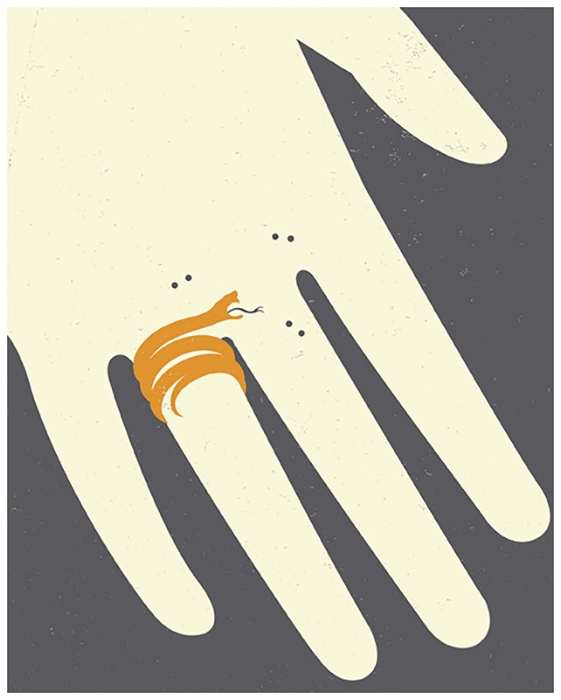If you have been cheated on – emotionally or physically – we feel for you. It is an extremely tough position to be in and extremely heart-breaking. You deserve better, and the shame and fault is not yours but of the person who cheated on you. Marriage is beautiful and complicated but even in the worst of circumstances, nothing excuses infidelity.
If you find yourself in such a position, there is a tough decision you have to make. Do you want to give this relationship another chance or end it right then and there? This decision is life-changing not just for you, but also your children if there are kids involved. Nevertheless, it is yours and only yours to make.
Keep reading for some of the things that you should consider if you are faced with this. We also consulted with Zahrah Vayani, the C.E.O of Women Lawyer’s Association and an advocate for the high court, for her insight on the legal matters regarding infidelity:

Do A Root-Cause Analysis
If you decide to stay with that person, the first thing you should do is a root-cause analysis of why the cheating occurred in the first place – this will help you gauge if this person should even be given a second chance or not. According to Good Therapy, “Affairs happen for myriad reasons. Adultery does not always occur due to lack of satisfaction. A partner may enter an affair based on personal unhappiness too.” Again, nothing can excuse this transgression, but it is wise to think about the why, especially if you plan on working things out. You need to understand who you are in a relationship with. And while a severe transgression like infidelity causes serious damage to a relationship, you need to judge for yourself if you think things can take a U-turn and result in a healthy marriage.
Go For Marital Counselling
If you decide to stay with that person, going to therapy and working through your issues is a way of understanding if you can truly forgive your partner for the trauma that they caused you. According to Psychology Today, “One of the most devastating relationship transgressions is infidelity. Yet many couples manage to overcome such betrayal; some even grow to have a stronger relationship. How do they do it? Research indicated that the answer involves two related concepts – relational commitment and the capacity to forgive.” If you are not able to forgive your partner, and more importantly, if your partner is not truly remorseful for their betrayal, it is better to end the relationship and focus on taking care of yourself, rather than causing yourself more pain and hurt.

Seek A Divorce
This is a tough decision for any spouse, but it may also be the best thing you can do for yourself. Ultimately, you deserve a partner who honours your marriage like you have honoured it. Cheating is disrespectful to you and your marriage, and you do not need to accept it or forgive it. Instead of being miserable in your current marriage, it’s best to put your energy towards healing emotionally and finding a new healthy relationship that makes you happy (or not, if you don’t want to be in one). If you’ve decided this is the route you’d like to take, be sure to know your rights.
According to Zahrah, if your husband has married another woman without asking for your permission, there is a case that you can file against him. But if he is involved in acts of infidelity outside a marriage, there is little one can legally do apart from seeking a divorce or khula.
Section 18 and 19 of the Nikanama grants every woman the right to divorce. In Pakistan, this section is ordinarily crossed out before it is given to the bride to sign. Therefore it is important for every girl to be mindful of this before signing, this is a right given to you and should not be taken away. If this section of your Nikanama has been crossed out, you are unable to seek divorce without intervention of the court. In this scenario you can apply for Khula (or the dissolution of marriage).
Regarding the procedure of divorce, Zahrah says ‘If you do have the right for divorce, then you can file for it. It can be a mutual divorce under the divorce deed, or you can send the divorce on a stamp paper via your lawyer. It then, thereafter has to be registered in the union council where the marriage was registered. After 90 days of iddat, the divorce certificate is released.’
Regarding the rights of a wife to property after a divorce has taken place, Pakistan’s law states that the bridal gifts given to the wife are the exclusive property of the wife during or after the marriage. Upon dissolution of the marriage, the wife is also entitled to claim deferred dower and maintenance during the period of iddat.
Maintenance And Marital Property Under The Laws When Seeking A Divorce
The main problem one faces is marital property and maintenance. A man is supposed to maintain his wife up until the iddat period which is 90 days. After the 90 days, there is no maintenance for the wife under the law. Children however yes, can be maintained till the age of 18, or till they marry – this depends on what the husband agrees on. When it comes to martial property, the wife is entitled to any property or bank account that is under her name but apart from that, the stipend is minimum during the iddat period. If one goes to court, it can be as little as Rs. 15,000, or more if the husband wants to pay more.

If You Are Filing For A Khula
A khula is a woman’s right under the Shariah law. If a woman does not have the right to divorce and if it’s been cancelled out in her nikkahnama, she can file for a khula. The time period for this process depends on various things such as the province you’re filing the case in, the responsiveness of the husband etc. Once all modes of services to get the husband to appear in court are completed, then the court can proceed without the other party being present. Also, as Zahrah states, as this right is given to a woman, she can simply say she doesn’t want to live with the man anymore. No reasons need to be provided in a khula application. However, if one applies for a Khula, they give up their right to their Haq Meher.
Haq Meher
The induction of Mehr in Islamic law was to enhance a wife’s ability to have desirable stipulations in her marriage contract and provide her with financial security. Mehr is payable immediately after the marriage if demanded by the wife, on the dissolution of the marriage or on the happening of a specific event. Haq Mehr is a right granted to you in your marriage contract, the details of which are listed in section 13-17 of your Nikahnama. This can be the value of the Mehr, whether it is being given in cash or gold, and when it will be given. If you are seeking a divorce, remember to keep in mind your right to Mehr.
Women can put a lot of things in their Nikkahnama, says Zahrah. She says to specifically study the second page of the Nikkahnama. ‘A woman can have a lot of conditions which they aren’t always well aware of; they can put in marital property, they can put in what they want as Meher and they can put any in any other conditions of marriage that are important to them.’
As stated above, when you apply for a Khula, you give up your Haq Meher. Most spouses don’t ask you to keep it either, so that’s something to keep in mind if you’re applying for a Khula without any financial support.

Start To Heal
Dealing with infidelity requires immense emotional support. It is important to seek assistance from people who understand what you’re going through, this includes therapists as well as family and friends who have dealt with similar betrayal. You need and deserve care, love and support, which can only be found by talking about what has happened with compassionate and empathetic people. Your primary obligation is to yourself (assuming you’re taking care of those who depend on you such as your children if you have any). So give yourself time and love to heal, don’t dwell on it, don’t ruminate and don’t beat yourself up about it. This was not your fault.







What do you think?
You must be logged in to post a comment.